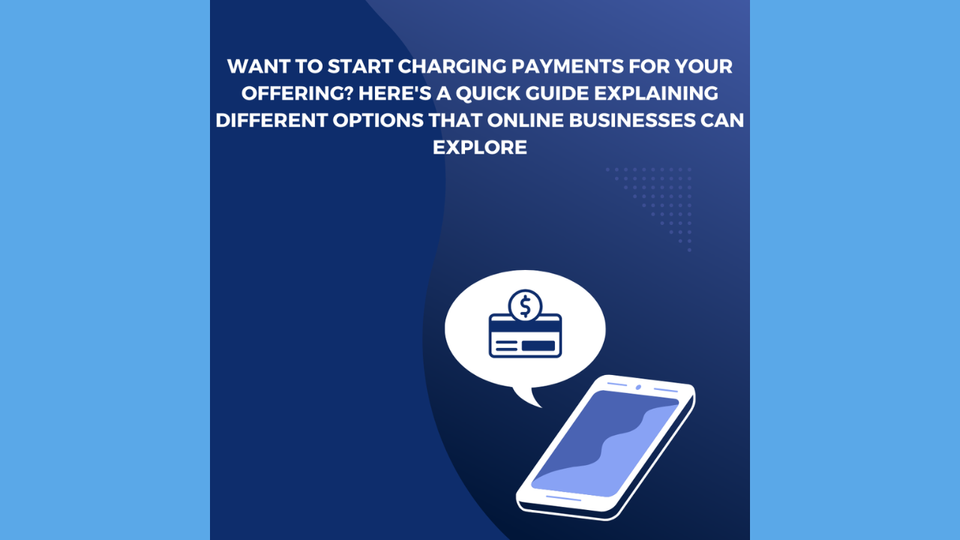Want to start charging payments for your product? Here's a quick guide on the best practices

Choosing the right payment solution is important for your user experience, compliance, and how you manage revenue when you want to start charging for your products and offerings In this guide, we’ll explore different payment operators, explain key concepts like payment gateways and merchants of record, and help you understand which option works best for your business model.
This blog is written by Akshat Virmani at KushoAI. We're building the fastest way to test your APIs. It's completely free and you can sign up here.
Payment Operators
There are various payment operators from which your online business can choose. Here’s a breakdown of some of the most common options:
- Stripe: Known for its developer-friendly API and customization options, Stripe supports various payment methods, including credit cards, digital wallets, and local payment options.
- PayPal: PayPal offers an easy-to-use solution with built-in buyer protections, making it a trusted payment method globally. It works well for businesses that want a plug-and-play option without a complex setup.
- Square: Designed for small businesses, Square offers online and in-person payment solutions. Its pricing is transparent, offering additional tools like invoicing and virtual terminals.
- Braintree: Braintree is a PayPal-owned business that supports multiple payment types and currencies, making it a good option for international businesses.
- Adyen: A global payment processor that offers a wide range of payment methods and seamless integrations, making it popular among enterprise-level businesses.
Payment Gateway vs. Merchant of Record
These two key terms often cause confusion, but understanding their differences can help you decide which service to use.
- Payment Gateway: A payment gateway is a technology that captures and transfers payment data from the customer to the acquiring bank. Examples include Stripe and PayPal. It doesn’t handle compliance, chargebacks, or taxes—that responsibility is done from the business side. If you want flexibility and control over your payment process, this option is suitable.
- Merchant of Record (MoR): An MoR not only handles the payment processing but also the legal responsibilities of transactions, including tax handling, compliance with local regulations, and managing chargebacks. Companies like Paddle and FastSpring offer MoR services, which can be a good option for SaaS businesses that want to avoid administrative burdens and complex international compliance. If you’re operating in multiple countries, an MoR may simplify compliance with local tax and privacy laws.
Subscription SaaS
Many online businesses, especially SaaS companies, run on a subscription model. In this case, you need a payment system to handle recurring billing. There are specialized services for managing subscriptions, some of them are:
- Recurly: Reculry is a recurring billing platform with tools that manage subscriptions, including dunning management, which handles failed payments automatically.
- Chargebee: A versatile platform that integrates with various payment gateways and provides subscription management features like trial periods, automated invoicing, and customer retention analytics.
- Paddle: As an MoR, Paddle combines subscription management with handling global taxes, making it ideal for SaaS businesses operating internationally.
Use Case: If your business depends on recurring revenue, choose a subscription management tool that automates payments, manages churn, and provides flexible billing options like upgrades or downgrades.
Choosing the Right Option for Your Business
- Small Businesses and Startups: If you’re a small business, choose a payment processor that’s easy to set up and doesn’t require a lot of customization. PayPal, Square, or Stripe are good choices as they’re straightforward, trusted, and require minimal development work.
- SaaS Businesses: If your business follows a subscription model, choose a platform that handles recurring billing and offers features like automated customer management. Recurly and Chargebee integrates with many payment gateways and are designed for subscription-based businesses.
- International Businesses: If you operate across different countries, an MoR like Paddle or FastSpring can save you from dealing with complex tax regulations, foreign exchange fees, and compliance issues. These services take care of all the administrative headaches, allowing you to focus on growth.
- E-commerce Stores: For e-commerce, you’ll need a robust payment gateway that supports various payment methods (credit cards, PayPal, digital wallets). Stripe and Braintree are popular online retailers that offer customization and support various payment options.
To Conclude
Selecting the right payment option is essential to your business's growth and operations. Understanding how these systems work and matching them to your business model can streamline payment processing, reduce customer friction, and ensure compliance with global regulations. Whether you’re just starting out or expanding globally, choosing the right solution will be key to your success.
This blog is written by Akshat Virmani at KushoAI. We're building an AI agent that tests your APIs for you. Bring in API information and watch KushoAI turn it into fully functional and exhaustive test suites in minutes.

Member discussion